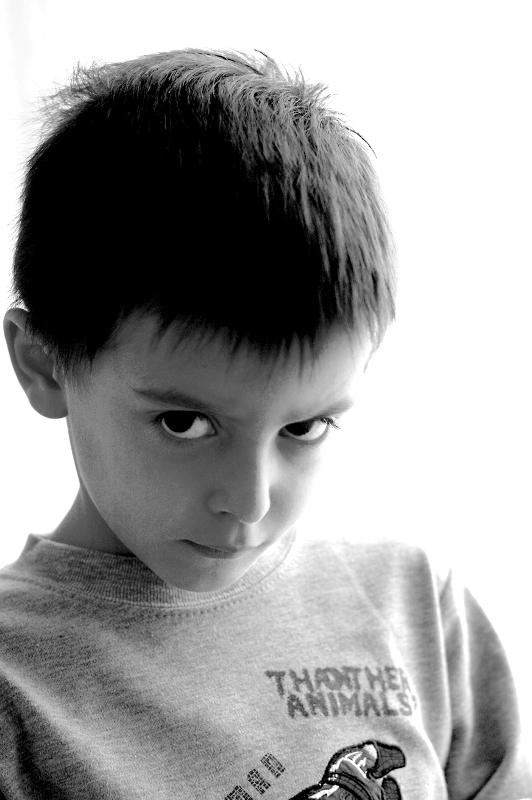Passive-aggressive disorder occurs more frequently in children who have not received a homogeneous education with clear and stable criteria. It is characteristic in children with divorced parents or with unclear or variable educational criteria.
 The paternal authority is poor and the children use their parents’ bad relationship for not obeying one of the two, taking refuge in the other one that suits you best. That this happens in our homes can be a source of daily conflict, in which the “pitched battle” is assured. At this article, we want to guide you on how to prevent my child from developing the disorder – passive personality.
The paternal authority is poor and the children use their parents’ bad relationship for not obeying one of the two, taking refuge in the other one that suits you best. That this happens in our homes can be a source of daily conflict, in which the “pitched battle” is assured. At this article, we want to guide you on how to prevent my child from developing the disorder – passive personality.
Index
- When is it most frequent?
- How to avoid it?
- When is this disorder favored?
- How to prevent it?
When is it most frequent?
The disorder is more frequent when the parents of the children have a very unstable affectivity, with ups and downs in mood.
If the child cannot predict the reaction that the father will have in his behavior, because it depends more on the parent’s state of mind than on what the child has done, he will have great difficulties in knowing what is expected of him, for both will have difficulties in working out his self-concept and in knowing how to behave in order to get a positive response to his behavior. This difficulty in knowing in advance the reactions of their parents creates in the child a permanent state of emotional tension, causing anxiety.
How to avoid it?
Parents should try to avoid arguments in front of the child, avoiding confrontations and fights.
Both parents must be clear about the educational line where they want to guide their child in parallel and go along the same educational path, even if there are intimate problems between them (it is very important that these problems are solved correctly to prevent them from becoming encrusted and the atmosphere is tense since children grasp it immediately and may feel guilty about something that does not concern them).
When is this disorder favored?
It can be seen favored in children who are closely linked to their parents, and a brother is born leaving the parents, to give him all the attention and dedication that they gave him before, the child feeling somehow excluded. This makes them suddenly feel insecure, feeling threatened by their parents’ affection and seeing them focused exclusively on the new member of the family.
They may resort to disruptive behaviors to regain their focus, even in a negative way. If they do not succeed, they can become very frustrated and turn aggressive towards the parents and the newborn sibling, creating a love-hate relationship. Sometimes they can be very aggressive and even cruel to the new member of the family, when their parents are not present, which can lead to dangerous situations.
How to prevent it?
When a new member of the family approaches, the son who is already among us, we must make him participate in this event(helping to paint the room, to choose toys or the color of clothes …). And when the new family member arrives, it is important to strengthen the bond between siblings, letting him approach, to caress his little brother(always under the supervision of the parents).
And above all ad most importantly, do not neglect their attention without overprotecting them. Attend to the two siblings in the same way according to their needs, and above all emotionally, so that the older child does not feel excluded and that the affection received is not affected. It will also be important to know how to know if your child has a passive-aggressive personality disorder.
This article is merely informative, we do not have the power to prescribe any medical treatment or make any type of diagnosis. We invite you to see a doctor in the case of presenting any type of condition or discomfort.




